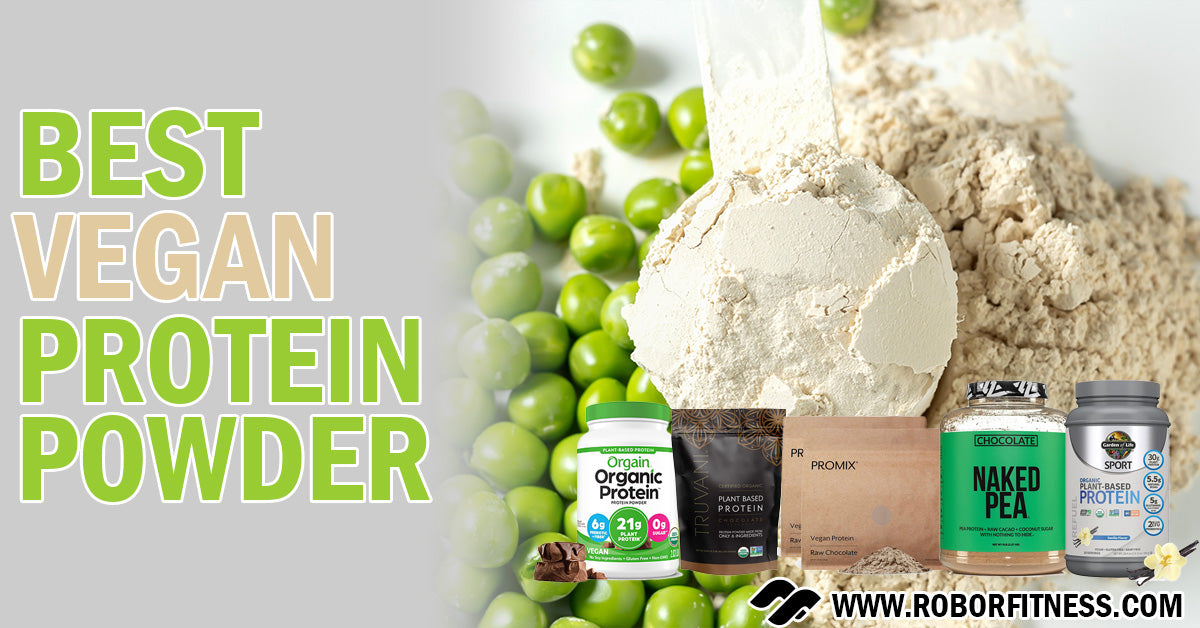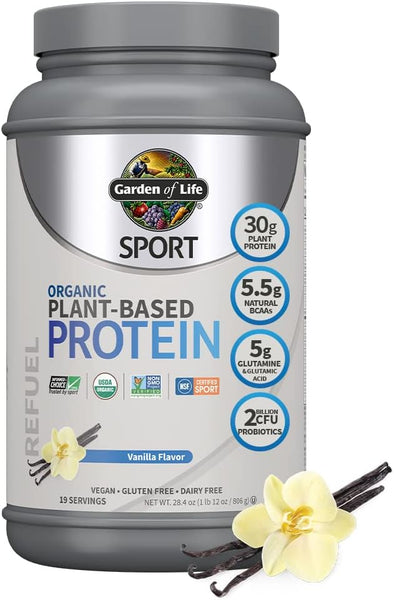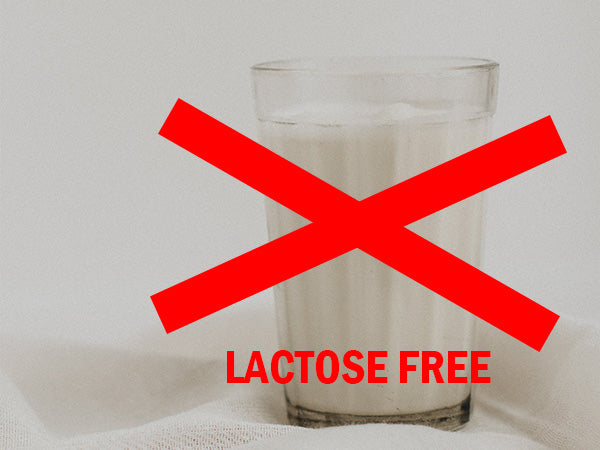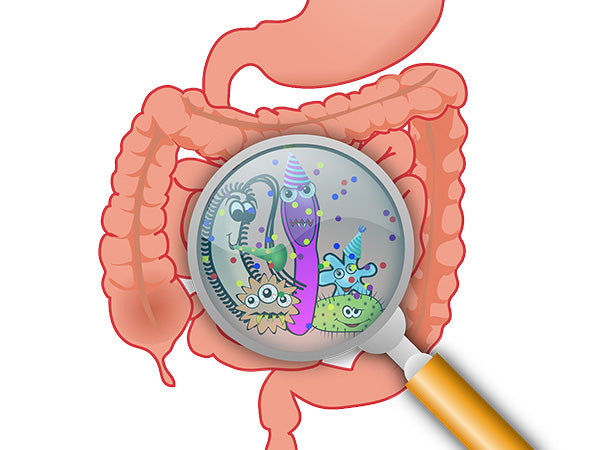Best Vegan Protein Powder: Tested by The Team
July 15, 2024

In the world of fitness and health, finding the best vegan protein powder can feel like a treasure hunt. Good news, though: your map to plant-based protein riches is right here! Our team, diverse in taste buds but united in fitness goals, has taken on the task of testing and reviewing various vegan protein powders.
From gym devotees to casual fitness fans, we've blended, shaken, and sipped our way through the market's best offerings. Our mission? To bring you an uncomplicated guide that cuts through the noise and offers straightforward, honest advice on the best vegan protein options out there.
Stay tuned to find your next protein partner that not only supports your fitness goals but also aligns with your vegan lifestyle. Let's get into it and find that perfect scoop!
Best Vegan Protein Powders At a Glance
Before we proceed to the in-depth reviews, let's quickly glance at our top selections in various categories. Whether you prioritize natural ingredients, budget-friendliness, or the best overall nutrition profile, we've got you covered. Here's a quick snapshot of our standout selections:
|
Category |
Product (Click to jump to review) |
|
Best Overall |
|
|
Best Without Artificial Sweeteners |
|
|
Best Without Stevia |
|
|
Best Budget |
|
|
Best Organic |
Each of these choices has been thoroughly tested and vetted by our team, ensuring you get quality and value in every scoop. Let's dive into the details of what makes each of these powders a winner in its category.
Best Vegan Protein Powder Overall: Promix

Check Price on Promix
Key Features
- Serving size: 32 grams
- Protein per serving: 25 grams (78%)
- Price per serving: $1.17
- Carbs: 3 grams
- Fats: 2 grams
- Suitable for vegans: Yes
Promix Vegan Protein Powder isn't just a protein supplement; it's a powerhouse in nutrition and affordability, making it our top pick for the best overall vegan protein powder. Imagine sipping on a smooth, rich chocolate shake that's not just a treat for your taste buds but also a boon for your muscles. That's Promix for you. Each serving packs a substantial 25 grams of protein and 5.2 grams of branched-chain amino acids, which are key for muscle recovery and growth.
The secret behind its impressive nutritional profile? Organic Canadian yellow peas. These aren't just any peas; they're protein-rich and coupled with raw cacao, known for its high antioxidant content. The result? A whole food-based protein powder that's as clean as it gets. And when we say clean, we mean free from hexane, enzymes, gluten, soy, GMOs, refined sugar, artificial sweeteners, and anything that even remotely sounds like a chemistry experiment.
The folks at Promix have gone the extra mile to ensure that 94% of the ingredients are sourced from North America. Plus, being a part of 1% for the Planet, they're not just about making great protein powder; they're about making a difference.
With its easy-to-blend texture and light sweetness from monk fruit, it's hard not to look forward to your post-workout shake. And yes, every serving also provides 200% of your daily Vitamin B12 needs, something not many vegan proteins can boast about.
In our experience, Promix has been a game-changer, it's so great that it even landed a spot in our Best Protein Powder Round-Up. It's not just a protein powder; it's a commitment to your health, taste, and the environment. Perfect for those who take their fitness and planet seriously.
Pros
- Has a high protein content essential for muscle recovery and growth
- It supports muscle recovery efficiently
- It's environmentally conscious
- Has a great taste and texture
- It’s affordable
Cons
- Those who prefer various flavors might find the options limited
- While it blends well, some might find the texture slightly different from traditional whey proteins
Best Vegan Protein Powder Without Artificial Sweeteners: Garden Of Life

Check Price on Amazon
Key Features
- Serving size: 42 grams
- Protein per serving: 30 grams (71%)
- Price per serving: $2.13
- Carbs: 7 grams
- Fats: 3 grams
- Suitable for vegans: Yes
This Garden of Life Vegan Protein is a true heavy-hitter in the realm of the best protein powder without artificial sweeteners. It's like the clean, green, muscle-building machine of your fitness dreams. With a USDA organic certification, this powder is not just about muscles; it's a statement of purity.
After a workout, when your muscles are crying out for some TLC, Garden of Life swoops in with 30 grams of complete protein and over 5 grams of BCAAs. It's like a repair kit for your muscles, powered by organic tart cherries, apples, turmeric, goji berries, and blueberries – because who knew recovery could taste so good?
This protein isn't just about muscle repair; it's got your immune system's back too, with a 2 billion CFU probiotic blend. It's like having a tiny wellness army in your shaker bottle.
Rest easy knowing this protein powder is as clean as it comes – no GMOs, soy, dairy, or banned substances. Just pure, unadulterated plant power. So, if you're looking for a protein powder that's as serious about your health and recovery as you are, Garden of Life is your perfect match.
Pros
- Has high-quality organic ingredients
- It effectively aids in muscle repair post-workout
- Rich in antioxidants
- Supports immune health
- Free from allergens and additives, making it suitable for various dietary preferences
- No artificial flavorings
Cons
- The natural flavor might not appeal to everyone, especially those accustomed to artificially flavored supplements
- The price might be on the higher side compared to other vegan protein powders
- It is primarily formulated for post-workout recovery, which might limit its use for some consumers
Best Vegan Protein Powder Without Stevia: Truvani

Check Price on Amazon
Key Features
- Serving size: 36 grams
- Protein per serving: 21 grams (58%)
- Price per serving: $2.21
- Carbs: 5 grams
- Fats: 3 grams
- Suitable for vegans: Yes
Truvani protein powder is like the holy grail for those seeking the best protein powder without stevia. It's the clean-eating champion, boasting a formula that's free of artificial sweeteners, additives, and fillers. Think of Truvani as the friend who always chooses the finest ingredients for dinner; that's how selective they are with their components.
What's more, it's not just about what's not in it; it's also about what is. With its USDA Organic certification, non-GMO and vegan-friendly credentials, Truvani is the protein powder that makes you feel good about what you're consuming. And, let's be honest, who wouldn't want a protein powder that uses organic monk fruit for a touch of sweetness, bypassing the need for stevia?
The taste and texture of this vegan protein shake are where it shines. You can say goodbye to chalky, grainy protein shakes. Truvani blends seamlessly into your morning smoothie or post-workout shake, offering a rich flavor that feels more like a treat than a supplement.
Plus, it supports muscle recovery and gains, which means you're not just satisfying your sweet tooth but also giving your muscles the nourishment they need. In the world of protein powders without stevia, Truvani stands out as a clean, delicious, and effective choice.
Pros
- Free from artificial sweeteners, additives, and fillers
- It's USDA organic, non-GMO, and vegan-friendly
- Sweetened naturally with organic monk fruit
- Offers a rich flavor without being chalky or grainy
- Aids in muscle recovery and maintenance
Cons
- Has limited flavor options compared to some competitors
- Price may be slightly more expensive due to premium ingredients
- Some might find the monk fruit sweetness quite dull compared to stevia-based products
Best Budget Vegan Protein Powder: Naked Pea

Check Price on Amazon
Key Features
- Serving size: 38 grams
- Protein per serving: 25 grams (65%)
- Price per serving: $0.97
- Carbs: 8 grams
- Fats: 4 grams
- Suitable for vegans: Yes
Naked Pea Protein is a champion in the world of budget protein powders, offering simplicity and nutrition without breaking the bank. With just three ingredients – yellow pea protein, raw cacao, and organic coconut sugar – this protein powder is a testament to the beauty of minimalism. It's the minimalist artwork of the protein world: simple, yet profound.
It's not only about being budget-friendly; Naked Pea is also about being environmentally conscious. The raw yellow peas are grown on eco-friendly farms in the USA and Canada, ensuring that your protein choice is as kind to the planet as it is to your wallet.
Each serving packs a solid 25 grams of protein, alongside 5.6 grams of BCAAs, making it a heavyweight in the nutrition department. And with only 8 grams of carbs and 5 grams of sugar, it does well to keep calories to a minimum for those keeping an eye on their macros.
Whether you're blending it into a post-workout shake or sneaking it into your green smoothie, Naked Pea is versatile. It's a reliable, budget-friendly option for anyone looking to maintain a clean diet and support muscle recovery without splurging. With Naked Pea, you're getting straightforward nutrition, with no frills attached.
Pros
- It is eco-friendly
- It's budget-friendly
- The peas go through water extraction as opposed to chemical extraction
- It has a decent amino acid profile, which is key for muscle development
- Free from artificial sweeteners and Stevia
- Made from only 3 ingredients
Cons
- Some might find the coconut sugar sweetness less appealing
- It has limited flavors
Best Organic Vegan Protein Powder: Orgain

Check Price on Amazon
Key Features
- Serving size: 46 grams
- Protein per serving: 21 grams (46%)
- Price per serving: $1.34
- Carbs: 15 grams
- Fats: 4 grams
- Suitable for vegans: Yes
Orgain Organic Plant-Based Protein Powder is like the Swiss Army knife of Organic protein powders – versatile, reliable, and organically awesome. With its new look but the same beloved formula, the Creamy Chocolate Fudge flavor is a crowd-pleaser. It's not just a protein powder; it's a ticket to delicious, guilt-free indulgence.
With 21 grams of organic plant-based protein from peas, brown rice, and chia seeds per serving, it's the best organic protein powder for those who like their nutrition as clean as their conscience.
Whether you're a busy professional, a super mom, or a gym enthusiast, Orgain fits the bill. It's versatile enough to jazz up your breakfast shakes, give your baked goods a protein boost, or simply act as a quick, on-the-go meal replacement. Plus, being USDA organic, vegan, and non-GMO, it's not just good for you; it's good for the planet.
This isn't just a protein powder; it's a statement about living a healthy, sustainable life. So go ahead, blend it, bake it, or just shake it up – Orgain is here to make your health journey deliciously simple.
Pros
- It is versatile
- It’s made from organic ingredients
- It's rich in nutrients
- It doesn’t contain artificial flavourings or sweeteners
- It has over 59,000 reviews on Amazon with an average rating of 4.5/5.
Cons
- It's slightly higher in carbs, which might not suit all diet plans
- Organic ingredients may make it pricier than some non-organic options
- At 46% protein content, this makes it the lowest protein content supplement on our list
Vegan Protein 101
Ingredients

Vegan protein powders, a staple in plant-based diets, are crafted from a variety of protein sources, each bringing its unique benefits to the table. Understanding these sources is key to choosing a powder that aligns with your dietary needs and fitness goals. Let's explore some of the most common ingredients found in vegan protein powders.
- Pea Protein: Extracted from yellow split peas, this protein is a favorite in the vegan world. It's not only rich in essential amino acids but also easily digestible, making it a great option for those with sensitive stomachs.
- Hemp Protein: Derived from hemp seeds, hemp protein is a complete protein, containing all nine essential amino acids. It's also rich in omega-3 and omega-6 fatty acids, which are great for heart health.
- Soy Protein: One of the most comprehensive protein sources, soy protein is extracted from soybeans and is a complete protein. It's also loaded with vitamins and minerals, contributing to overall nutrition.
- Rice Protein: Usually sourced from brown rice, this protein is hypoallergenic and gentle on the digestive system. While it's not a complete protein on its own, it's often combined with other plant proteins to round out its amino acid profile.
- Chia Protein: Made from chia seeds, this protein is not only a good source of protein but also rich in fiber and omega-3 fatty acids. It's a great choice for those looking to boost their overall nutritional intake.
- Pumpkin Seed Protein: Pumpkin seed protein is gaining popularity for its rich mineral content, including magnesium and zinc. It's also a complete protein, making it an excellent choice for plant-based diets.
- Quinoa Protein: Quinoa is a complete protein, containing all nine essential amino acids. Protein powders made from quinoa are also rich in fiber and iron, adding to their nutritional value.
- Sunflower Seed Protein: Extracted from sunflower seeds, this protein is another complete protein source. It's particularly rich in Vitamin E, an antioxidant beneficial for skin and hair health.
- Sacha Inchi Protein: Derived from the seeds of the Sacha Inchi plant, this protein source is a powerhouse of omega-3 fatty acids and is easily digestible.
Each of these protein sources offers a unique blend of nutrients, and many vegan protein powders combine several of these to create a balanced amino acid profile.
Complete Protein Source
Understanding the concept of a "Complete Protein Source" is crucial when diving into the realm of vegan protein powders. Proteins are made up of amino acids, often referred to as the building blocks of muscles and other body tissues. There are 20 different amino acids, and among them, 9 are termed 'essential.'
These essential amino acids (EAAs) are pivotal for muscle protein synthesis, essentially the process of building muscle fibers. They're called 'essential' because our body cannot produce them on its own, and thus, they must be obtained through our diet.
Now, a complete protein source contains all these 9 essential amino acids in sufficient quantities. In the plant-based protein world, sources like soy, pea, and hemp stand out as complete proteins. This makes them particularly valuable for those following a vegan or vegetarian diet, as they ensure the body receives all the necessary amino acids for proper muscle development and overall health.
On the flip side, non-essential amino acids are the 11 amino acids that our body can produce internally. So, the focus, especially in a plant-based diet, is often on ensuring adequate intake of those essential amino acids.
While soy, pea, and hemp are complete on their own, other plant-based proteins, such as rice or pumpkin seed protein, may lack one or more of the essential amino acids. This doesn't diminish their nutritional value but does highlight the need for a varied diet or specially formulated protein powders.
Aware of this, many manufacturers blend different plant protein sources to create a product that offers a complete amino acid profile. This approach not only ensures the presence of all essential amino acids but can also improve the overall taste and texture of the protein powder.
In summary, a complete protein provides all nine essential amino acids, crucial for muscle building and general bodily functions. In contrast, an incomplete protein source is lacking in one or more of these essential amino acids. For anyone relying on plant-based protein sources, understanding this distinction is key to ensuring a well-rounded and effective dietary intake.
Is Vegan Protein Good For Building Muscle
As interest in plant-based diets grows, questions often arise about their effectiveness in muscle building, especially when compared to animal-based proteins. The nutritional quality of plant proteins is a point of discussion, with some concerns about their potential limitations in promoting muscle growth.
Research on this topic has shown mixed results. Some studies indicate that plant proteins may elicit a lower anabolic (muscle-building) response than animal proteins. However, other studies haven't found significant differences. This inconsistency has led to concerns among athletes about whether a plant-based diet might impact their muscle gains (1). More research is therefore needed on the topic to be able to draw an accurate conclusion.
The perceived lower protein quality of plant sources is attributed to a few factors:
- Lower Essential Amino Acid Content: Plant proteins typically have fewer essential amino acids per unit than animal proteins.
- Unbalanced Amino Acid Profiles: For instance, many plant proteins are low in lysine. A significant deficiency in one essential amino acid can limit the body's ability to utilize others effectively.
- Lower Absorbability: The body must digest and absorb proteins for their amino acids to become bioavailable, and plant proteins are often less absorbable than their animal counterparts.
Despite these challenges, it's possible to achieve sufficient protein intake with a plant-based diet. Strategies to overcome these hurdles include:
- Increasing overall consumption of plant-based proteins.
- Combining different plant proteins to create a more complete amino acid profile.
- Opting for plant-based protein supplements known for higher absorbability.
A high protein intake, around 1.6-2.2 grams per kilogram of body weight per day, seems adequate to counteract the potential lower quality of plant-based proteins and maximize muscle building.
However, reaching this level of protein intake can be challenging with a plant-based diet alone, as it may require consuming large quantities of food, leading to high caloric intake. In such cases, protein supplements can help ensure you’re hitting your daily protein targets. (Jorn Trommelon, 2023 – Protein Researcher)
Another study found comparable muscle hypertrophy (growth) between diets that included plant-based proteins and those with mixed protein sources, provided the protein intake was above 0.7 grams per pound of body weight. This indicates that whether following a vegan or omnivorous diet, the key factor for muscle building is meeting daily protein requirements (2).
While plant-based proteins may initially seem less efficient for optimizing muscle mass gains, these concerns can be mitigated. A diet rich in high-quality plant proteins, potentially supplemented by vegan protein powders, can effectively support muscle building. The focus should be on ensuring adequate protein intake, regardless of the dietary preference.
How Much Protein Do I Need

When it comes to building muscle mass, the importance of protein, regardless of whether you follow a vegan or omnivorous diet, cannot be overstated. Protein is the fundamental building block of muscle, and its adequate consumption is essential for maximizing muscle growth.
Research has consistently shown that to effectively build muscle, the ideal protein intake ranges from 0.7 to 1 gram per pound of body weight (which translates to about 1.6 to 2.2 grams per kilogram of body weight)(3).
Not consuming enough protein can significantly hinder your ability to maximize muscle growth. Protein serves as the fundamental building block of muscle; without sufficient intake, you're essentially leaving potential gains unachieved. It's like having a state-of-the-art workout program but not fueling your body adequately to benefit from it. No matter how advanced or well-structured your workout routine is, without enough protein in your diet, muscle building will be limited.
This emphasizes the importance of daily protein intake for anyone looking to increase muscle mass. Ensuring you consume enough protein every day is as vital as any part of your workout regimen. For vegans, this might mean paying closer attention to the protein content in their plant-based diet or supplementing with high-quality vegan protein powders to meet their daily protein needs effectively.
Vegan Protein Powder Benefits
Hit Daily Protein Goals
As we've discussed, ensuring adequate daily protein intake is crucial for muscle growth. Typically, vegan foods contain less protein compared to their meat counterparts, making it challenging to achieve the recommended protein intake through diet alone. This often means having to consume larger quantities of vegan protein sources, which might not always be feasible or practical.
This is where vegan protein powder becomes particularly beneficial. It serves as an easy, quick, and affordable solution to supplement your protein intake. Incorporating a serving or two of vegan protein powder into your daily routine can significantly contribute to your protein goals. It's an efficient way to ensure you're getting a substantial amount of protein, setting you on the right path toward meeting your daily nutritional needs for muscle growth and overall health.
Can Prevent Overeating
Here's a fun fact: protein is the social butterfly of macronutrients, always making you feel full and satisfied after a meal. It's like that friend who insists you've had enough fun for one night and it's time to go home. In scientific terms, protein is known for its high satiety value. This means that when you consume protein, you tend to feel fuller for longer periods.
So, what's the punchline? Well, by feeling fuller, the likelihood of raiding the fridge every hour diminishes. In other words, less snacking and overeating. And when you're not overeating, you're consuming fewer calories, which is a win-win if you're on a calorie-restricted diet.
It might sound a bit ironic, but yes, protein – especially easily accessible protein like that in vegan protein powders – could be your secret weapon in weight management. By keeping those hunger pangs at bay, you're less tempted to indulge in extra snacks, thus helping you control your overall calorie intake. Vegan protein powder isn't just for building muscle; it's also a stealthy supplement in your quest for weight loss!
Sweet Treat
I'm not sure about you, but the highlight of my day often includes enjoying a delicious chocolate protein shake. It's like indulging in a sweet treat, minus the guilt usually associated with high-fat, sugary snacks. This little pleasure becomes particularly significant when you're on a strict diet.
Most health-conscious diets emphasize clean, unprocessed foods, which is fantastic for your body, but let's be honest, it can sometimes leave your taste buds yearning for something more indulgent. That's where a flavorful protein shake steps in as a savior. It's not just about feeding your muscles; it's also about satisfying those sneaky cravings.
A well-flavored vegan protein shake can provide that much-needed respite from a rigid diet regimen, making it easier to stay on track without feeling deprived. So, yes, your protein shake can indeed be a guilt-free, delightful escape during a disciplined dieting journey!
Lactose-Free

Vegan protein powders are a symphony of relief for those with lactose intolerance, as they are completely free of dairy. This means no lactose, the sugar found in milk that often causes discomfort for many individuals.
For those who find dairy products hard to digest or have been diagnosed with lactose intolerance, vegan protein powders offer a smooth, stomach-friendly alternative. Not only do they enable you to meet your protein needs, but they also do so without the risk of gastrointestinal distress often associated with lactose.
Easier Digestion
For many, the switch to vegan protein powder is like giving their digestive system a well-deserved vacation. Unlike whey protein powders, which can sometimes lead to bloating and discomfort, vegan protein powders are often found to be gentler and easier to digest. This difference in digestibility can be a game-changer, especially for those who have experienced discomfort with whey-based products.
The reason behind this is quite straightforward: plant-based proteins are generally easier for the body to break down, process, and absorb compared to their dairy-based counterparts. This improved digestibility means fewer instances of feeling bloated or uncomfortable post-consumption.
Another noteworthy aspect of vegan protein powders is their high fiber content. Fiber, the unsung hero of nutrition, not only aids in digestion but also contributes to that feeling of fullness. This is particularly beneficial if you're following a calorie-restricted diet.
The fiber in vegan protein powders can help you feel satiated for longer periods, reducing the urge to snack unnecessarily and thus supporting your weight management goals. In essence, opting for a vegan protein powder can provide a double benefit: easier digestion and a helpful hand in maintaining dietary discipline.
Gut Health

Rotating your protein sources is like giving your gut a breath of fresh air. In the ever-expanding world of health and nutrition, the importance of digestive and gut health is increasingly recognized. Good gut health is a cornerstone of overall well-being. One effective strategy for supporting a healthy gut is to vary your protein intake. This means not getting stuck in a rut with the same type of protein day after day.
It's important to avoid consuming the same type of protein constantly. Switching up your protein intake not only helps prevent food sensitivities but also ensures a varied nutrient profile. Even if you have a preferred protein powder, try incorporating a vegan option occasionally, especially if your diet is primarily meat-based. This change can significantly benefit your digestive health.
Recipe Friendly
Vegan protein powders shine in the kitchen, especially when it comes to baking. Their unique composition tends to interact more favorably in recipes compared to other protein powders. If you're a fan of whipping up protein-rich pancakes or baking a hearty protein cake, vegan protein powders are your go-to ingredient.
They blend seamlessly into these recipes, offering a nutritious boost without compromising on taste or texture. Whether you're a culinary enthusiast or just looking to add a protein punch to your treats, vegan protein powders are an excellent and versatile choice.
Better Vitamins and Minerals
Vegan protein powders often pack a more substantial punch in terms of vitamins and minerals compared to their whey counterparts. Take iron, for example – a critical nutrient for energy and overall health.
While red meat is a well-known source, pea protein powder can be equally, if not more, effective. A single serving of pea protein powder can deliver about 35% of your daily iron needs, whereas an equivalent serving of animal-based protein often contains none.
Beyond just iron, plant-based proteins like pea and soy are rich in antioxidants and vitamins that you won't find in whey protein powders. Essentially, using vegan protein powders is like hitting two birds with one stone: you get your daily dose of protein and a significant portion of your vegetable nutrient requirements in one go.
This influx of essential vitamins, minerals, and antioxidants is not just about meeting dietary needs; it also plays a vital role in boosting your immune system and enhancing your overall health.
Environmentally Friendly
Opting for vegan protein powders isn't just a win for your health; it's a victory for the environment too. These plant-based proteins are generally more sustainable and have a lesser environmental impact compared to animal-based sources. Here's why:
Vegan protein sources, such as peas, soy, and hemp, require significantly less land and water for cultivation. This reduced resource usage is a crucial factor in sustainability. Moreover, the production process of these plant-based proteins typically results in fewer greenhouse gas emissions.
In a world increasingly concerned with climate change and environmental degradation, every choice matters. By choosing vegan protein powders, you're not only nourishing your body but also contributing positively to the health of our planet. It's a simple yet impactful way to support a more sustainable future and reduce your ecological footprint.
The Final Say
In our quest for the best in vegan protein powders, we've explored options that cater to every need, from the purist to the budget-conscious. Each product, be it Promix, Garden of Life, Truvani, Naked Pea, or Orgain, excels in its category, offering unique benefits whether in terms of ingredients, taste, or environmental impact.
Embracing a vegan protein powder means more than just supporting muscle growth; it's about nurturing overall health and making a positive choice for the planet. Whatever your preference or dietary requirement, our roundup provides a trustworthy guide to help you make an informed decision in your journey towards health and wellness.
References
- Pinckaers, P. J. M., Trommelen, J., Snijders, T., & Van Loon, L. J. C. (2021). The anabolic response to Plant-Based protein ingestion. Sports Medicine, 51(S1), 59–74. https://doi.org/10.1007/s40279-021-01540-8
- Hevia-Larraín, V., Gualano, B., Longobardi, I., Gil, S., Fernandes, A. L., Costa, L. a. R., Pereira, R. M. R., Artioli, G. G., Phillips, S. M., & Roschel, H. (2021). High-Protein Plant-Based diet versus a Protein-Matched omnivorous diet to support resistance training adaptations: A comparison between habitual vegans and omnivores. Sports Medicine, 51(6), 1317–1330. https://doi.org/10.1007/s40279-021-01434-9
- Morton, R. W., Murphy, K. L., McKellar, S. R., Schöenfeld, B. J., Henselmans, M., Helms, E. R., Aragon, A. A., Devries, M. C., Banfield, L., Krieger, J., & Phillips, S. M. (2017). A systematic review, meta-analysis and meta-regression of the effect of protein supplementation on resistance training-induced gains in muscle mass and strength in healthy adults. British Journal of Sports Medicine, 52(6), 376–384. https://doi.org/10.1136/bjsports-2017-097608






Thomas D
Author
Thomas is a dedicated fitness enthusiast with over 12 years of experience in the gym. As a level 2 qualified gym instructor, he combines his passion for working out and nutrition to help others achieve their fitness goals. Thomas stays up to date with the latest fitness research and follows the work of top experts in the field. With a balance of textbook knowledge and real-life experience, he provides practical guidance to help others reach their full potential.